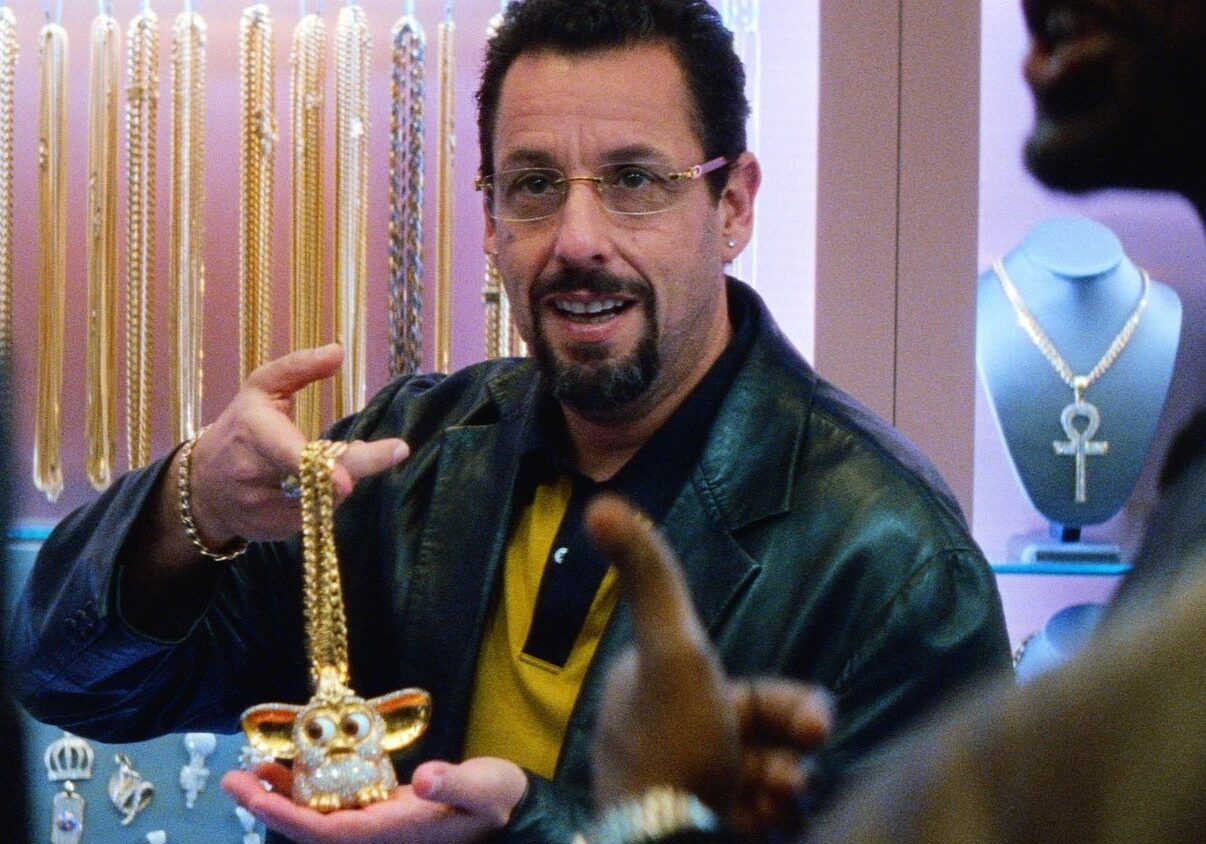They Live!
To learn more about Epsilon Theory and be notified when we release new content sign up here. You’ll receive an email every week and your information will never be shared with anyone else.
Continue the discussion at the Epsilon Theory Forum
The Latest From Epsilon Theory
This commentary is being provided to you as general information only and should not be taken as investment advice. The opinions expressed in these materials represent the personal views of the author(s). It is not investment research or a research recommendation, as it does not constitute substantive research or analysis. Any action that you take as a result of information contained in this document is ultimately your responsibility. Epsilon Theory will not accept liability for any loss or damage, including without limitation to any loss of profit, which may arise directly or indirectly from use of or reliance on such information. Consult your investment advisor before making any investment decisions. It must be noted, that no one can accurately predict the future of the market with certainty or guarantee future investment performance. Past performance is not a guarantee of future results.
Statements in this communication are forward-looking statements. The forward-looking statements and other views expressed herein are as of the date of this publication. Actual future results or occurrences may differ significantly from those anticipated in any forward-looking statements, and there is no guarantee that any predictions will come to pass. The views expressed herein are subject to change at any time, due to numerous market and other factors. Epsilon Theory disclaims any obligation to update publicly or revise any forward-looking statements or views expressed herein. This information is neither an offer to sell nor a solicitation of any offer to buy any securities. This commentary has been prepared without regard to the individual financial circumstances and objectives of persons who receive it. Epsilon Theory recommends that investors independently evaluate particular investments and strategies, and encourages investors to seek the advice of a financial advisor. The appropriateness of a particular investment or strategy will depend on an investor’s individual circumstances and objectives.









So if capitalism stops working, the world goes to hell? Not hardly, I think. Today’s manipulated markets frequently divorce risk from reward, mostly eliminate genuine price discovery, institutionalize moral hazard, and greatly reduce real competition. And are we really sorry? On “Friday Night Lights,” they may celebrate the struggle of grinding out the yardage to score a touchdown, but in the brief interval of our actual lives, isn’t it usually preferable to just move the goalposts whenever we can? The process of transforming markets into utilities that Rusty described so cogently described in his last post has been well underway for some time. Want to Make Capitalism Great Again? Anyone who’s prepared to see their business or their portfolio creatively destroyed, please raise your hand.
Appreciate the comments!
The question you raise is an important one. How do we define whether capitalism is “working?”
For the purposes of this post, I approached this very narrowly in terms of whether the owners of capital are compensated in the form of financial returns for taking/“owning” risk. If that doesn’t happen, it’s more or less a tautology that investing is a useless exercise.
In the larger sense, I very much like your “moving the goal posts” analogy. I think this is EXACTLY what happens in practice, and is EXACTLY why historically we tend to see cycles of wealth concentration, increasing debt, etc. followed by (often violent) periods of deleveraging and wealth redistribution. As you point out, when the rubber meets the road, we collectively tend to cast our votes for kicking the can versus making painful adjustments. What is of significant interest to me here (and I’ve not made up my mind about) is whether this kind of long-run meta-instability is inevitable or not. But I tend to think it is.
I didn’t have the space to explore it in this note, but in addition to being “macro calls” in the traditional sense, our portfolios roll up into “macro calls” on geopolitical relationships and the stability/metastability of our social and economic systems as well.
The special sunglasses prop from the film made me think about a modern application of the concept. If you’ve seen the recent Netflix Fyre documentary, or the recent interview of Tim Pool on the Rogan podcast (https://www.youtube.com/watch?v=6RJgFVbCx4Q) or seen the clickfarm episode on ‘Silicon Valley’, I am going to use these as modern examples of the ‘sunglasses’.
To summarize, old media had a revenue model, or a couple of them anyways, that were well understood and we could all basically wear one or two pairs of different sunglasses to see what the hell was going on behind the scenes (ie why cigarette companies in the 50’s hired doctors to promote Camels). As social media has become the dominant method of narrative construction, complexity increases in orders of magnitude.
Someone asked me “what does the common knowledge game say about digital media making up users?”. I don’t know. It says something. It was a long time ago when Youtube was sued by advertisers for allowing/facilitating fake views of embedded ads on music videos. Mainstream media has talked about Twitter bots for what has seemed like an eternity. So it would be on the ET NLP map somewhere. But listen to what Pool is saying… There are so many more methods, techniques and ways to QUICKLY and CHEAPLY create false narrative today than there ever have been. There are LOTS of pairs of sunglasses, but each pair only lets you see certain things behind the curtain. And if your sunglasses happen to be super fancy, and can illuminate multiple spectrums of narrative, by tomorrow something else will come along and render them obsolete. But in the meantime you have a false sense of confidence in your vision because Fancy Sunglasses.
Tribalism further exacerbates this. Tribal language and terms often have different meanings outside of that tribe. There are lots of tribal little 4chan groups that even make up fake signs and symbols to ‘troll’ the mainstream in the confusing obfuscating language and culture wars we find ourselves in.
If there’s anything that seems certain is that the ‘right thinking’ and ‘right acting’ missionaries of social interaction (nudging state, oligarchy, MsM) have never had such a dynamic minefield through which to wade, and the old missionaries are being replaced with new ones that have a more diffuse set of narratives to push than the old regime. Markets are (or should be) a marketplace for opinions. It’s hard to understand how the right thinking financial doctrines will be immune from the 4 dimensional abstraction game that is happening in the way that most of the population now communicates with each other. It’s hard to see how any of the previous ‘beliefs’ about markets will be valid. But maybe I am wearing the wrong tint on my sunglasses.
Thank you for the excellent insights. In addition to collectively kicking the can because we all know the alternative will be terrible (at least for now,) I would submit another reason the modern system (of theft and deception – let’s call a duck a duck!) has survived 600 years in the West, more or less intact.
The top elites have set thing up so they can’t lose. That is, they don’t totally depend on certain events or mass psychology unfolding a certain way, even if they have good confidence in their forecasts. If confidence in state money totally collapses, there will still be confidence in gold, silver, and now cryptocurrencies (possibly created to dilute the demand for precious metals and limit the extent of inflating away the debts.) As I mentioned before, it’s a matter of making multiple alliances, and surviving whichever party happens to win out. This would also explain why gold and silver (and especially cryptos) never quite die.
This also seems consistent with the top elites’ strategy in the political realm. Ultimately, you can argue it is the only way to survive the long game.
I love this as an extension of the metaphor used in the note. I don’t have anything especially profound to add, but I am totally on board with this idea of The Great Scattering–that is to say, the old-school MSM monopoly on Truth and The Accepted Continuum of Views having been completely and utterly shattered by the internet. The meteoric rise of MMT is a kind of case study in how “new media” took what was a relatively fringe economic idea and transformed it into a mainstream Narrative, despite the best efforts of the High Priests of Right Thinking Financial Doctrine. MMT has been out there for a while now in the more progressive corners of the internet, but it has exploded into the mainstream with speed that astonished even me (and I have expected MMT to gain real momentum for quite a while now).
I think your comment, and (I hope) my note pair well with Rusty’s Tanna Tavu series. If we can’t rely on the Special Sunglasses or similar tools to reliably spot Narrative in the wild, it’s all the more important to hold loosely to our convictions and relentlessly challenge our priors.
I’ve read about a lot of isms. The only one that I see that really ‘works’ is tireless self-promotionism. And it’s so sickeningly pervasive that when you see the opposite, it’s transcendental (almost never). MMT is tireless. There is no comfort there, just like watching the star quarterback and prom queen win again and again. Do we really want them to lose? Choose wisely.